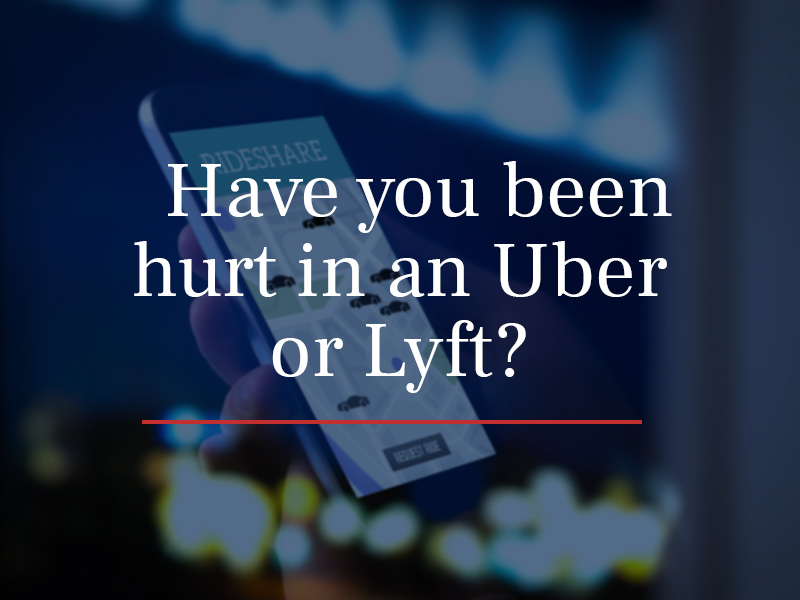Ridesharing services such as Uber and Lyft, legally referred to as Transportation Network Companies, account for an increasingly large portion of the transportation sector.
“Ubering” has become a part of everyday life for many people. If you have been injured in an Uber or Lyft accident, the Milwaukee rideshare accident attorneys at Cannon & Dunphy S.C. can help. As Milwaukee car accident lawyers, we are committed to seeking the maximum possible compensation for the people we represent.
Ridesharing Statistics
Estimates of the number of people working in ridesharing continue to rise, with one recent report claiming that Uber has 750,000 drivers in the U.S., while Lyft, its chief competitor, has 1.4 million drivers in the U.S. and Toronto. Reports of the number of rides these services provide are in the millions per day. With this kind of volume, the potential for accidents is high.
Injuries in Ridesharing Accidents
A vehicle accident can occur while using a ridesharing service, leading to serious injuries, including but not limited to:
- Broken bones
- Traumatic head injuries
- Neck and back injuries
- Spinal cord injuries
- Burns
- Lacerations
- Internal injuries
- Fatal injuries
These injuries have the potential to cause long-term health problems, disabilities, or loss of life. A ridesharing accident attorney in Milwaukee can help you get compensation towards your recovery.
Who is Liable in a Ridesharing Accident?
Establishing liability for an accident involving a ridesharing vehicle will be based on the facts in the case. If negligent driving behavior by a ridesharing driver caused the accident, the ridesharing service may be held liable. Ridesharing services provide insurance to drivers, restricted to when the driver is transporting a customer, after which the insurance protection will revert to the driver’s personal auto insurance.
If the driver of another car caused the accident in which you were injured, compensation can be pursued through the negligent driver’s auto insurance. A civil lawsuit can be filed against the at-fault, negligent driver and their insurance company as well.
If the rideshare driver and another driver share a percentage of the responsibility for the accident, we can help you to pursue compensation from both liable parties. Your case is unique, but with the help of a Milwaukee ridesharing accident lawyer at Cannon & Dunphy S.C., you can be confident that the maximum possible compensation will be pursued from all liable parties.
Insurance Requirements for Ridesharing Companies in Wisconsin
Sections 440.40 through 440.495 of the Wisconsin Statutes set out the guidelines for regulation of TNCs such as Uber and Lyft. Every driver must carry auto insurance recognizing that they are participating in a Transportation Network Company. The policy can be owned by the driver or provided by the ridesharing company.
When the driver is logged into the software for their TNC, but is not providing transportation network services, the minimum coverage required is:
- $50,000 for bodily injury and death per person
- $100,000 for bodily injury and death per incident
- $25,000 for property damage
When the driver is physically transporting passengers, the level of coverage must be at least $1 million for bodily injury, death and property damage. If the driver’s insurance has lapsed or does not provide coverage at the required levels, the ridesharing company must cover any claim. A participating driver in a TNC must carry proof of this insurance coverage in his or her vehicle.
What to Do If You’re in a Ridesharing Accident
Whether you are a passenger in a ridesharing accident or you have been involved in an accident with the driver of a ridesharing vehicle, contact Cannon & Dunphy S.C. as soon as possible. Refrain from making a statement until a Milwaukee ridesharing accident attorney has reviewed the facts in your case
We handle all cases on a contingency fee basis. There is no risk in contacting us for a free consultation. Call now to get in touch with a Milwaukee personal injury attorney.
